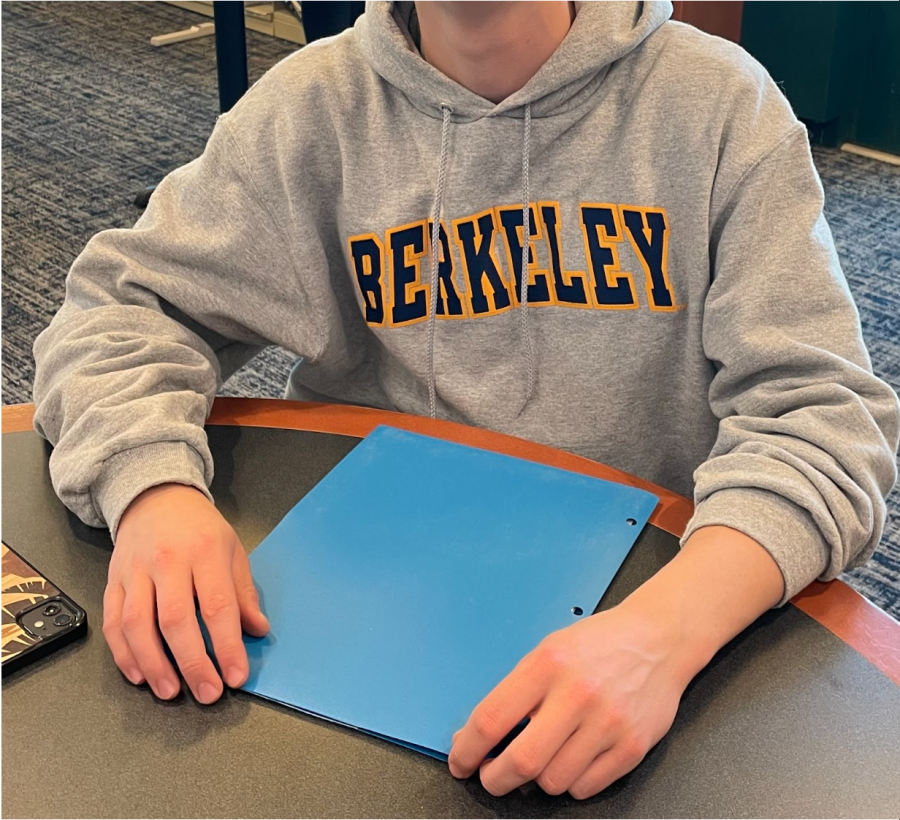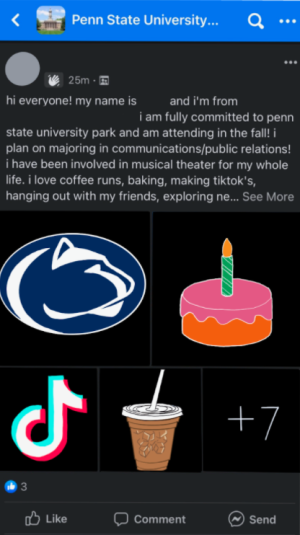Seniors’ Sweatshirt Day reveals malinformed attitudes about college
Though college sweatshirts are commonplace at Staples, the first school day after May 1st imbues each with the quality of truth and clairvoyance in revealing to all onlookers the wearer’s fate for the next four years.
Years ago, in a shameful past, Inklings would publish a list of where every graduating senior was attending college. Predictably, this drew the ire of administration, students and parents alike, and the list has not been published since 2015. However, though formalized collegiate disclosure ended quietly and swiftly, in its place grew another annual practice with the same goal of collective divulgence.
Sweatshirt day is a tradition that finds itself in the same echelons of familiarity as strange senior girl backpack practices, the library’s Friday fun day and senior skip day. Though the name itself is not exactly descriptive, Staples students, and especially seniors, know that sweatshirt day is the first school day after May 1st, when college-bound seniors represent their future schools with sweatshirts.
It sounds benign enough, and if there were nothing else to it, it could be a lovely tradition that encourages ubiquitous pride in the culmination of four years of effort and fosters communal recognition of each others’ achievements. However, the cut-throat and unrelentingly competitive nature of Staples students’ relationship to college admissions creates undue shame and anxiety in the lead-up to what ought to be a day of celebration.
I would not ask that college become a clandestine affair; sweatshirt day as one of our last communal hurrahs is a practice that allows, in some cases, for shared pride and renewed anticipation of the years ahead. However, if the positive potential of this tradition is to be realized, we, as a community, must reevaluate how we value and compare different colleges and schools.
For starters, going to college at all is a relative rarity. Forbes reported in 2021 that fewer than ⅓ of adults aged 25 or older have received a bachelor’s degree. In the insular bubble of Westport, Connecticut, few of us realize that the overwhelming majority of American adults have not had the same opportunities we have had. With that in mind, any condescension or scorn owing to the prestige or reputation of a school, or the perceived lack thereof, is ludicrous to the extreme.
Secondly, college admissions and denials rarely, if ever, represent a lack of intelligence or accomplishment. Often, they reveal more about familial status, wealth, alumni or employee connections, etc. It is worth remembering that we are less than five years out from 2019’s highly publicized college admissions scandals, and that legal-but-underhanded methods of determining who gets to attend highly selective schools are commonplace.
Another consideration rarely made is that not everyone chooses to attend the most prestigious or well-known school they were accepted to. Though easy to forget in Westport, money is a constant factor in a world where the price of an undergraduate degree and a modest house are equivalent. Even if one is in the position to fund the most exorbitant college experience, prestige alone is not always enough to guide the decision of where to spend four formative years of one’s life. Campus politics, student attitudes and even areas of study are considerations rarely reflected in conversations about who is going to the “best” school.
The fact of the matter, though human nature compels us to reject it, is that there is no single “best” school. That is a gross and highly flawed oversimplification that ignores nuance and the variability of personal circumstance. It is my hope that most Staples’ seniors feel that they will soon be attending the “best” school for them, and that they eagerly anticipate the way schools will cater to their idiosyncrasies and support them as they seek to better the world we live in.
I, personally, will be participating in Sweatshirt Day, despite the fact that I am not planning on attending a school that accepts fewer than 10% of applicants or tops any newspaper’s arbitrary rankings. I hope instead to celebrate accomplishment, both mine and my peers’, and to look forwards to the achievement and success that the future holds.






















































